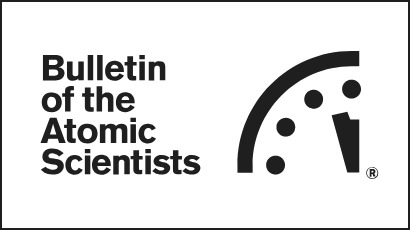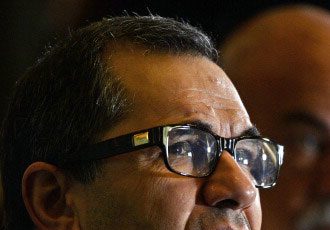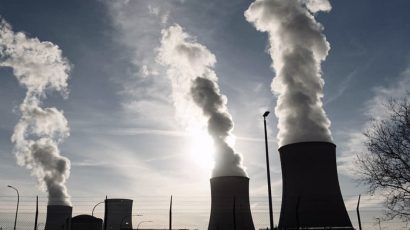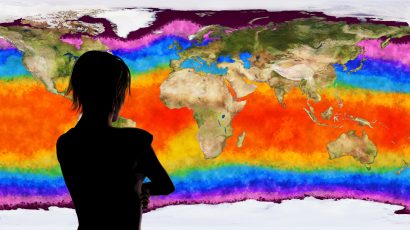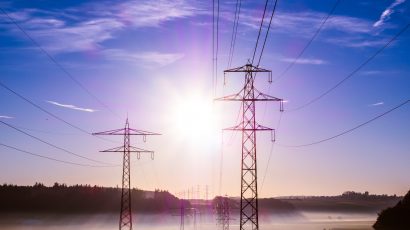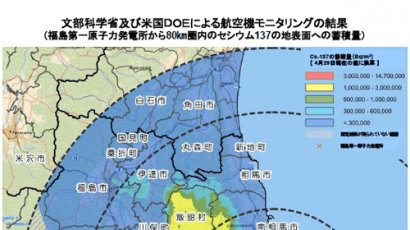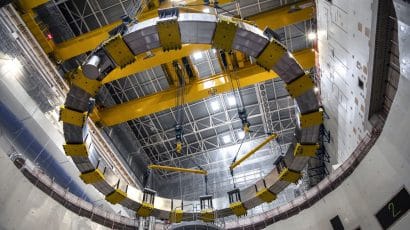Search results for
The crisis at Japan's Fukushima Daiichi nuclear power plant following the 9.0 earthquake and tsunami on March 11, has brought the past tragedies at Chernobyl and Three Mile Island into the spotlight again. To offer a more thorough understanding of Chernobyl, the Bulletin has compiled this reading list from its archives. Dating from 1945 to 1998 and 1998 to present, the Bulletin's archives are a valuable resource for those interested in additional materials.
How my Gen Z students learned to start worrying and dismantle the Bomb
A life-long opponent of nuclear weapons—raised during the Cold War—reflects on intergenerational lessons about activism, and teaching college students to embrace their curiosity, and their fear, on the way to saving the world.
Lessons from a Mexican theft
What the hijack of a truck carrying radioactive material says about nuclear security.
Five assessments of the Fukushima disaster
A survey of books on the catastrophe at the Fukushima Daiichi nuclear power plant, three years after the earthquake and tsunami known collectively as 3/11.
Interview: Iranian Deputy Foreign Minister Majid Ravanchi
A discussion of the state of play in the apparent final days of the Iranian nuclear negotiations and the stumbling blocks remaining on the path toward a final deal
ITER is a showcase … for the drawbacks of fusion energy
Fusion still continues to need much more energy than it produces, consumes huge quantities of water, and may not be able to scale up because there may not be enough tritium. And that’s just for starters.
Six of 2017’s best columns
Our regular columnists tackle an eventful year.
Fukushima today: A first-person account from the field and the conference table
Because of Fukushima, some Japanese scientists who had been proponents of nuclear energy now oppose it.
Negotiating with Iran: Breakout and sneakout
While attention has been focused on centrifuges and breakout, there has been little on something more critical—uranium gas and sneakout.
North Korea’s strange, bloody mistake
The bizarre indictment and execution of Kim Jong-un’s uncle exacerbate Pyongyang’s international pariah status and make nuclear negotiations unlikely.
Should nuclear devices be used to stop asteroids?
The pros and cons of maintaining a stockpile to defend against near-earth objects
Obama’s opaque administration makes it harder to cover climate change
Obama came into office promising transparency in government, but actions speak louder than words.
The Guardian view on fusion: A moment of truth
Is it a really a technology that will be powering the electrical grid in 15 years?
放射線面および心理面における福島第一事故の影響
福島第一原発事故による放射能の大気中への放出は、チェルノブイリの10分の1と見られている。しかし、電離放射線に対する恐怖の問題を適切に処理しければ、この恐怖は、福島地域の人口の大きな部分に長期的な心理的影響を及ぼしうる。
放射線面および心理面における福島第一事故の影響
2011年4月12日――マグニチュード9.0の地震と津
Trump and violence in 2020: a timeline of incitement
President Trump has peddled disinformation on the most important issues of the last year; here's a look at where it's dovetailed with armed or violent action by his supporters.
Can Japan become a bridge-builder for nuclear disarmament?
Editor's note: To mark the presidential visit to Hiroshima, we are reprinting this August 2015 Bulletin column. The recent, 70-year anniversaries of the atomic bombings of Hiroshima and Nagasaki offer a sobering opportunity to truly re-examine the real impact of the use of nuclear weapons—and not just take a sanitized view. Because the age of … Continued
A new organization for cybersecurity across the electric grid
To guard against cyber attacks on the North American electric grid, three experts recommend forming an industry-supported organization like the one created by the nuclear industry after the Three Mile Island accident.
Fusion’s role in fighting climate change
It is unlikely that fusion will contribute in a major way to President Biden’s goal of decarbonizing US electrical energy production by 2035. However, between 2035 and 2100, the worldwide demand for energy is expected to climb fourfold. To meet this demand while not driving global warming, low-carbon energy sources such as fusion will need to be used on a growing scale.
‘We’d have to finish one new facility every working day for the next 70 years’—Why carbon capture is no panacea
Carbon capture and storage, or CCS, has been touted as a way to reduce atmospheric CO2. But how realistic is it to build CCS facilities on a scale large enough to combat climate change?
